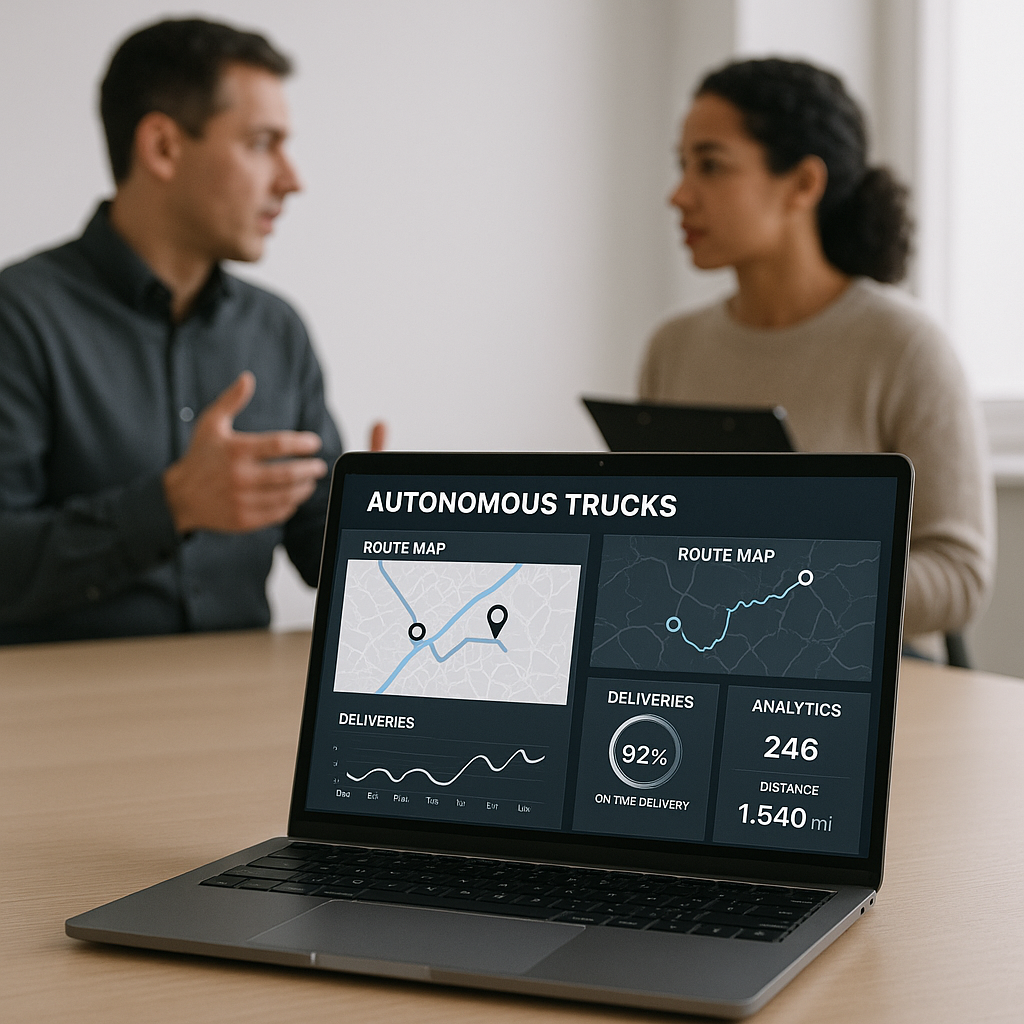# The Future of Logistics: How Driverless Trucks are Revolutionizing Deliveries
The world of logistics is evolving at a rapid pace, with technology driving significant transformations. Today, I want to talk about an exciting development that has recently taken place in Texas — the advent of driverless trucks. Aurora, a leader in autonomous technology, has launched its first fully autonomous Class 8 trucks, completing deliveries along the busy Dallas-Houston corridor. These trucks are paving the way for a new era in freight transportation, and I want to dive deeper into what this means for businesses and the industry as a whole.
## A Milestone in Autonomous Vehicle Development
After years of rigorous testing and validation, Aurora proudly claims the title of the first company to operate a commercial driverless trucking service on public roads. Completing over 1,200 miles of trips without a driver is no small feat. If this makes you think of a far-off future where human drivers are obsolete, it’s worth considering just how far we’ve come in the development of autonomous vehicles. According to Aurora CEO Chris Urmson, the goal is to enhance the benefits of self-driving technology swiftly and safely.
While this milestone is impressive, it’s important to note that the path hasn’t been entirely smooth. Various companies in the industry have faced challenges and even shuttered operations due to regulatory hurdles and public skepticism. Aurora’s approach emphasizes a conservative and safety-focused rollout, which is a crucial move given the past missteps of other companies in the sector.
## Addressing Industry Challenges
One of the significant issues currently afflicting the trucking industry is the alarming shortage of drivers. High turnover rates and increasing operational costs only compound the challenge, making an autonomous trucking solution increasingly appealing. Aurora’s technology offers the potential to mitigate these challenges significantly. For instance, driverless trucks can operate around the clock, without the need for breaks, leading to improved delivery times and less operational downtime.
Take, for example, a logistics company struggling to meet delivery deadlines due to the unavailability of drivers. By transitioning to autonomous trucks like those offered by Aurora, businesses could not only streamline their operations but also reduce labor costs associated with hiring and retaining qualified drivers. This shift could ultimately lead to a more resilient and efficient supply chain.
## Enhancing Safety and Efficiency
Safety is a primary concern in any transportation service. The technology that underpins Aurora’s trucks is designed with safety at its core. They have been engineered to predict potential hazards, such as red-light runners and pedestrians in low visibility situations. This level of intelligence and capability could significantly reduce accidents on highways, which benefits everyone — from trucking companies to regular motorists.
Real-world examples of such safety and efficiency benefits can be seen in the pilot hauls that Aurora has conducted over the past four years. With over 10,000 customer loads delivered across three million autonomous miles, the data is compelling. Businesses utilizing their services could experience fewer liability issues and a better reputation as a safety-conscious logistics provider.
## The Road Ahead for Aurora
Despite the successes, Aurora still faces financial challenges, reporting a net loss of approximately $748 million for 2024. Looking ahead, the need to monetize and prove their business model is apparent. As they prepare to expand their service to cities like El Paso and Phoenix by the end of 2025, their ability to transform pilot programs into profitable operations will be crucial.
Moreover, as the market continues to evolve, I’ll be interested to see how public perception shifts. More businesses may begin to embrace autonomous trucking as a viable solution, especially as technology becomes more tested and refined. Additionally, partnerships with industry giants like Volvo and Uber can offer substantial resources and credibility, which may further bolster their position in the market.
## Conclusion: Embracing Autonomy in Logistics
The introduction of driverless trucks like those from Aurora represents a significant leap forward for the logistics industry. By addressing critical challenges such as driver shortages, enhancing safety, and improving efficiency, these autonomous vehicles have the potential to revolutionize how goods are transported.
At Best Choice, we understand that integrating advanced technology into your business can be daunting. But as we move into this exciting new era, the benefits far outweigh the challenges. If you are considering how automation and modern technology can enhance your business processes or solve operational issues, we invite you to reach out. Together, we can explore innovative IT solutions that set you up for success in an increasingly automated world. Whether it’s through logistics advancements or IT consulting, Best Choice is here to assist you every step of the way.





